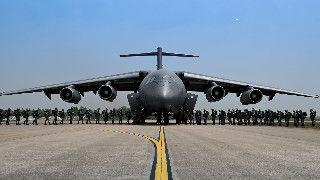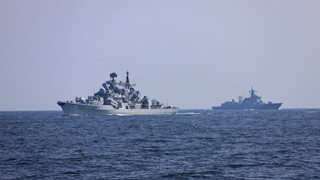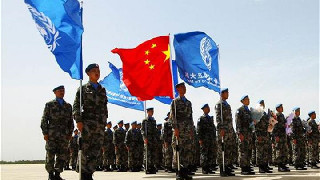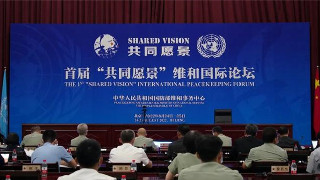By Wang Shuo
About 100 aircraft and 2,500 personnel from 17 countries are participating in Exercise Pitch Black 2022 in northern Australia. The three-week-long, US-led exercise includes America’s yes-man Britain as well as France and Germany. Does this mean Paris and Berlin will follow in the steps of America to militarily interfere in the Asia Pacific? Why are they so active in joint exercise?
First of all, the world is getting more and more insecure. Although peace and development are the mainstream after decades of economic globalization, military conflicts, such as the Russia-Ukraine conflict, still break out from time to time. The world has been further split because of the crisis, and traditional geopolitical logic is gaining ground again, which is a severe blow on the head for the Europeans who have gotten used to peace and integration.
Second, the advantages of the western institution are draining. French President Macron said since other countries have proved quite successful on their own development path, the western hegemony based on institutional advantages is declining. The EU labeled China as a “systemic rival” in March 2019 because China’s development has shocked and shaken the institutional power of the West, which refers to both the US and Europe although they are not completely the same.
Third, the importance of the Indo-Pacific is not to be overlooked. The Indo-Pacific may be geographically far away from Europe, but it is the fastest-growing region in the world with the greatest potential, and the mercenary capitalists intuitively wouldn’t miss this “express train” by any chance. Sending military aircraft or vessels to the region won’t make Europe the protagonist on the stage, but refreshing its presence every now and then still enables it to get a slice when splitting the cake.
Fourth, if you cannot beat it, join it. Stephen Walt wrote in his The Origins of Alliances that forming alliances is one of the most frequently used and perhaps the most effective ways for countries to deal with threats, ensure security, increase power, and maintain or expand their interests. Medium-sized and small countries’ strategy toward major ones is either to rely on them or join hands with them. European countries are obviously doing both now.
Fifth, it is the bitter fruit of strategic dependence. The Europeans have been trying hard to maintain a certain degree of independence in major-country competition, hoping to be able to choose how to engage with the world based on their own interests. But the reality is that the Russia-Ukraine conflict forced Europe to trade its policy independence for America’s security protection, giving Europe no choice but to succumb to Washington’s strategic arrangements in other areas or regions as well. As the US wants to curb China in the Indo-Pacific, European countries have to follow its lead whether they want to or not.
However, some European countries’ security concerns don’t exclude their selfish intentions, for which they have to pay a corresponding price.
First, there is the risk of armed conflict. Whatever fancy excuses they give, when European countries come to root for America in the Indo-Pacific, they must be mentally prepared that they are drifting farther away from their original intention of cementing security, and will only feel more insecure as they create and aggravate conflicts.
Second, there is the risk of being victimized. If European countries want to fish in troubled waters, they must be prepared to be used as a “shield”. The Biden administration is at its core no different from the previous one – “America first” is engraved on their bones and they would not have second thoughts about throwing their allies under the bus.
Third, there is the risk of getting worse with China. The China-EU volume of trade in goods exceeds 800 billion euros now, making China the EU’s largest trading partner. As Bettina Schoen-Behanzin, Vice President of the European Union Chamber of Commerce in China, said in a recent interview with AFP, the Chinese market is too big and too important, and it holds lots of opportunities in the future. Yet what Europe is doing – preaching peace and security on the one hand and practicing power politics on the other – is no way to gain favor with the Chinese people.
(The author is a professor at the School of International Relations and Diplomacy, Beijing Foreign Studies University)
Editor's note: This article is originally published on huanqiu.com, and is translated from Chinese into English and edited by the China Military Online. The information, ideas or opinions appearing in this article do not necessarily reflect the views of eng.chinamil.com.cn.











